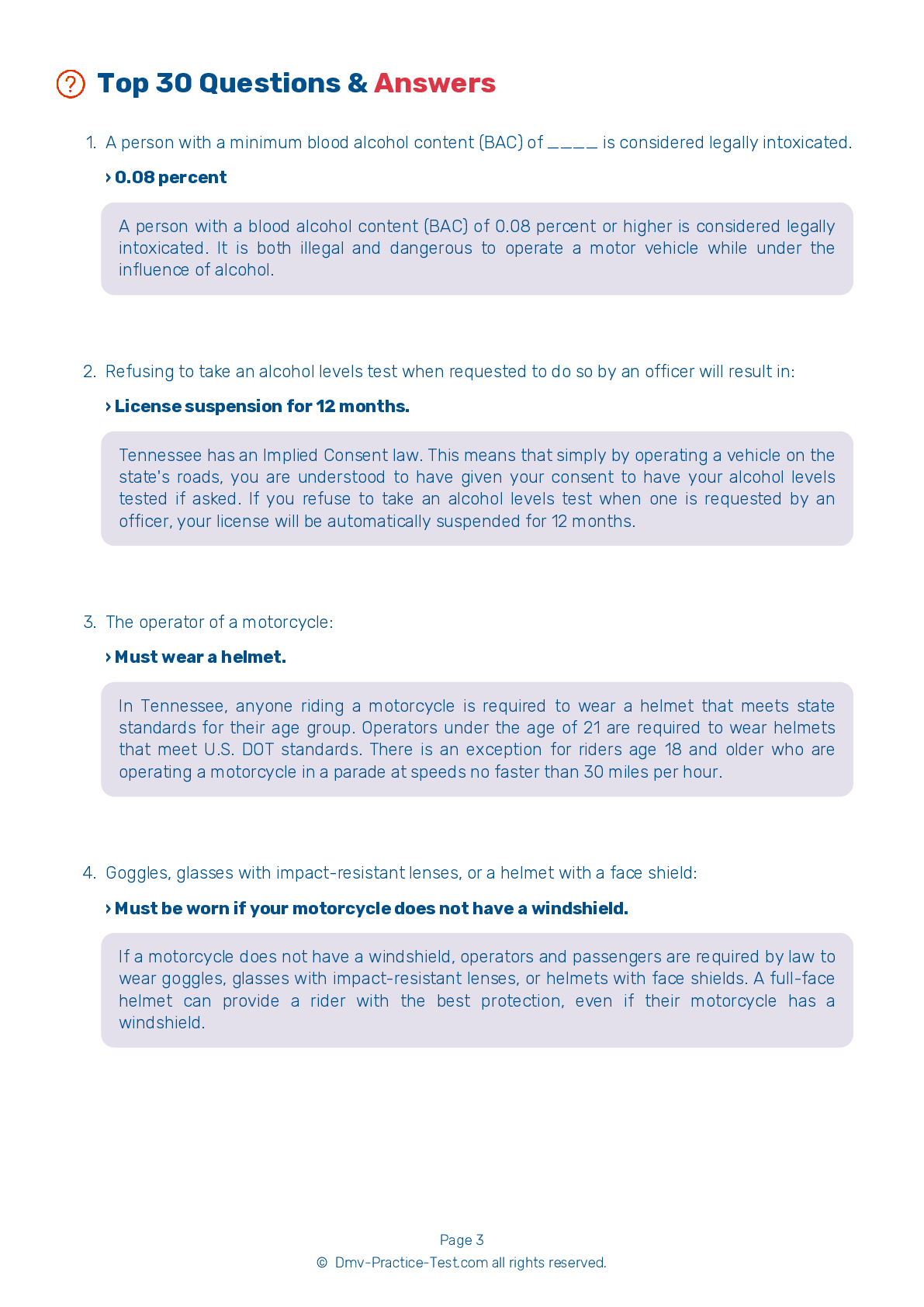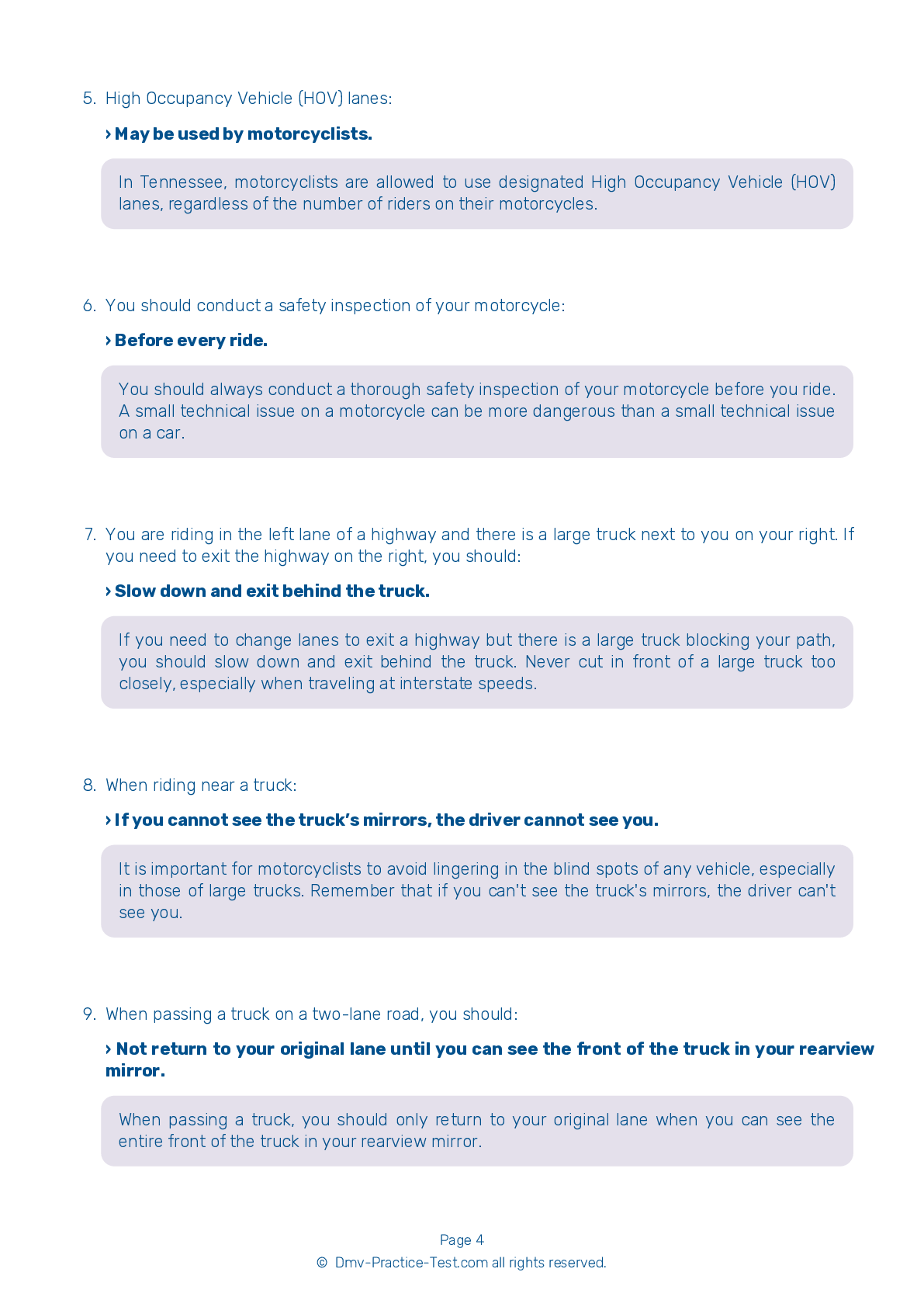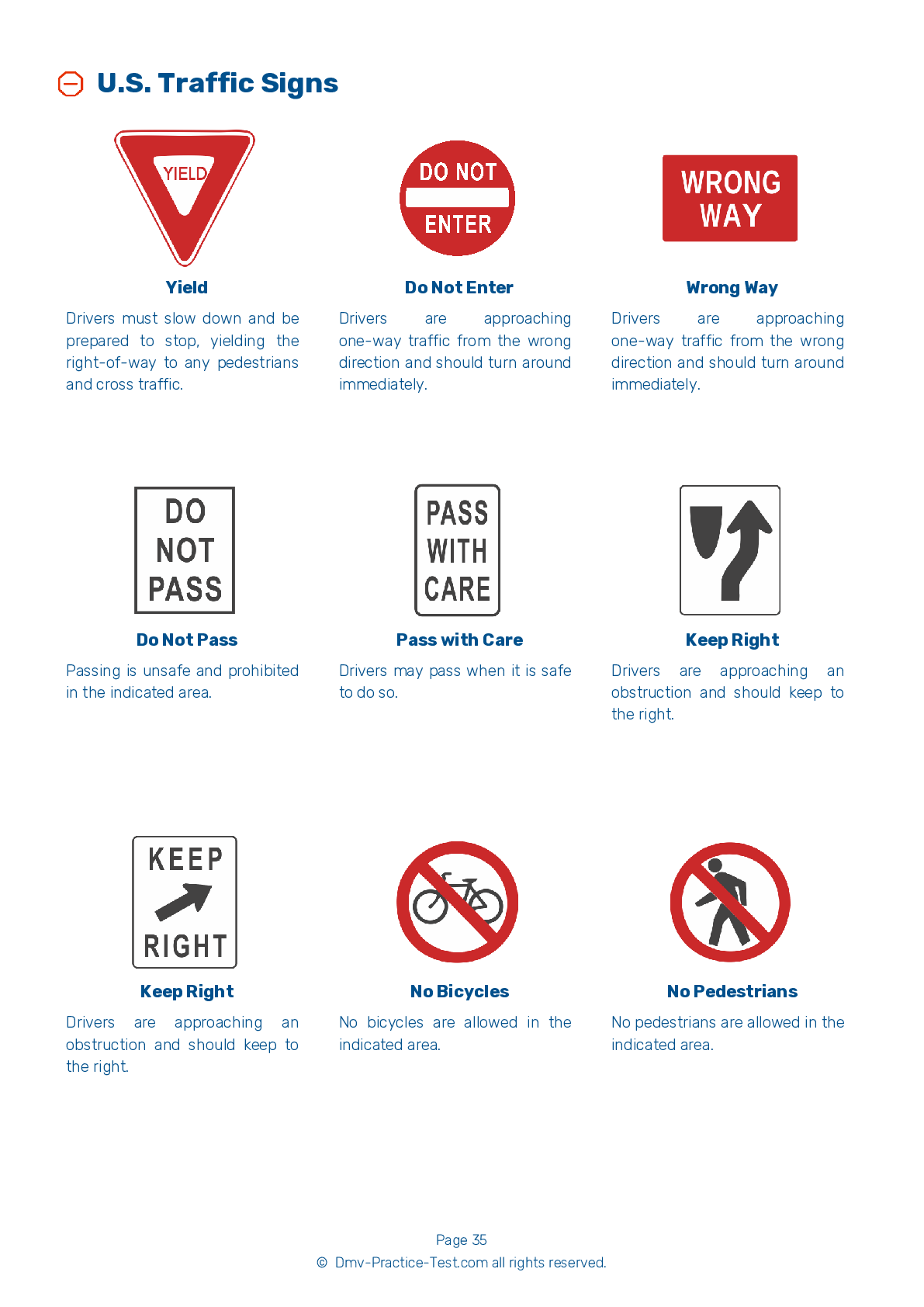Motorcycle Test | License TN 2026 | FREE Online Practice! #15 Page 2 of 4
Take this FREE motorcycle test (license in TN 2026) to check your knowledge of the road rules. To improve your results, download a motorcycle handbook online, study theory, and practice for free on our website. Still worried about how to get a motorcycle license in Tennessee in 2026? Check our website for more sample tests, train as much as possible, and boost your grades!
8 . If your rear wheel locks up while you are stopping on a straightaway:
If you accidentally lock your rear wheel while stopping on a straightaway, you can keep it locked until you have completely stopped. Even with a locked rear wheel, you can usually control your motorcycle if it is upright and traveling in a straight line.
9 . When changing lanes, you should:
Before changing lanes, make sure no other drivers are going to be in your path. Do this by checking your mirrors and looking over your shoulder in the direction you want to move.
10 . Your lane position should do all of the following, except:
A properly chosen lane position should provide a number of benefits, including an increased ability to see others and to be seen. It should help you avoid wind blasts, other drivers' blind spots, and surface hazards. Your lane position should discourage other drivers from trying to share your lane and provide you with an escape route, should a hazard arise.
11 . If used legally, operating while under the influence of marijuana is:
Even if marijuana is legal for medicinal or recreational use in the state in which you are riding, operating a motor vehicle while under the influence of marijuana is not legal. Doing so is risky because the substance can distort your perception of space, time, and speed.
12 . When riding behind a car, traveling in the center portion of the lane:
When following a car, you should ride in a position that allows the driver to see you in their rearview mirror. Usually, that means riding in the center portion of the lane. Because most drivers check their rearview mirrors much more often than they check their side mirrors, being in this lane position increases the chance that they will see you.
13 . Under ideal conditions, it is recommended that riders maintain a minimum following distance of:
Under normal conditions, it is recommended that riders maintain a following distance of at least two seconds. Riders should increase their following distance any time conditions are less than ideal.
14 . To shift up to a higher gear, you must:
To shift up to a higher gear, position your foot under the shift lever and lift.
See the exact questions that will be on the 2026 Tennessee DMV exam.
99.2% of people who use the cheat sheet pass the FIRST TIME
Jeneen was tired of paying $5/gallon. She got herself a scooter that required the motorcycle license. She studyed the motorcycle test cheat sheet and passed her test the next day!
Christopher tells us how he knew nothing prior to obtaining the motorcycle study guide, and he only got one question wrong because he clicked on the wrong answer by mistake.



